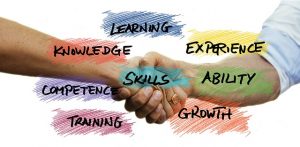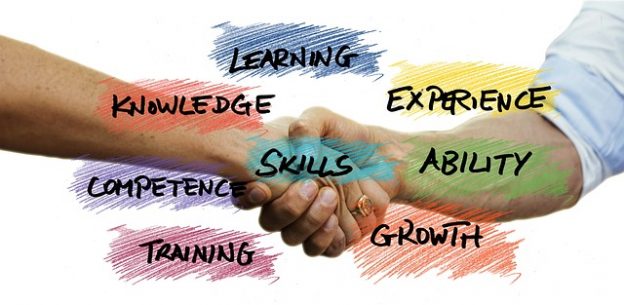I’ve met countless people who struggle with effective interpersonal communication. Many people find it difficult to express their thoughts and emotions in a clear and straightforward manner, whether in the job, social settings, or personal relationships.
Improving your interpersonal communication skills, on the other hand, is critical for developing solid relationships and achieving success in both the professional and personal domains.
This post will go through several strategies and techniques for improving your communication skills. We will discuss a variety of tactics that might help you become a more effective communicator, from active listening to nonverbal signs.
You can strengthen your connections with people and achieve more success in all aspects of your life by incorporating these tactics into your regular interactions.
Recognising the Value of Interpersonal Communication
 It’s ironic that I’m about to teach you about the value of interpersonal contact. But, let’s be honest, efficient job communication and enhancing communication in personal relationships are critical for success in all facets of life. It is critical to be able to connect with others and explain oneself clearly.
It’s ironic that I’m about to teach you about the value of interpersonal contact. But, let’s be honest, efficient job communication and enhancing communication in personal relationships are critical for success in all facets of life. It is critical to be able to connect with others and explain oneself clearly.
Effective interpersonal communication in the workplace can lead to enhanced productivity, higher morale, and a more pleasant working environment. When coworkers communicate successfully with one another, they are better equipped to exchange ideas and collaborate. Miscommunications are minimised, resulting in a more effective workflow.
Furthermore, clear communication aids in the development of strong ties among coworkers.
Similarly, effective interpersonal communication skills are required for the development of healthy personal connections. Active and empathic listening is essential for understanding one another and creating trust. Communication entails more than just speaking; it also entails being a good listener.
We can form stronger bonds and have more rewarding relationships when we communicate effectively with our loved ones.
In conclusion, the significance of interpersonal communication cannot be emphasised. Connecting with others through good communication can lead to improved outcomes and healthier connections, whether at business or in our personal lives. Take the time to polish your talents in this area; it will pay you in a variety of ways!
Active Listening Is Essential For Effective Communication
Active listening is an essential part of good communication. It entails paying attention not only to what the other person is saying but also to their tone, body language, and underlying emotions. You can become a better listener and enhance your interpersonal skills by enhancing your focus during conversations.
Eliminating distractions is one approach to increase your focus. This includes putting your phone away, shutting off the television, and finding a quiet place where you can have an uninterrupted conversation.
You can offer your whole attention to the speaker and better understand their message when you are totally present in the moment. Asking questions is another strategy for active listening. You encourage the speaker to offer more information and clarify their opinions by asking open-ended questions. This not only allows you to obtain a better understanding of their point of view, but it also demonstrates that you are interested in what they have to say.
Try the following suggestions to become an engaged listener:
1. Practise mindfulness: Concentrate on being in the present moment.
2. Remove distractions: Locate a quiet location where you may have an uninterrupted chat.
3. Ask open-ended inquiries to elicit further information from the speaker.
4. Restate what was said: To ensure comprehension, repeat what you heard in your own words.
You may improve your relationships and communication abilities by learning to be an active listener. It takes practise and work, but with time and patience, you will notice benefits for yourself and people around you.
Nonverbal Communication: What Your Body Language Is Saying
Body language cues are extremely important in our ability to communicate successfully. Even when we don’t say anything, our body language might convey how we’re feeling or what we’re thinking. That is why it is critical to be aware of nonverbal communication and understand how to interpret it.
Nonverbal communication interpretation requires practise and patience. First, consider the person’s entire demeanour. Are they nervous or at ease? Do they appear to be interested in what you’re saying?
Then, pay attention to specific body language clues such as facial expressions, posture, and gestures. Crossed arms, for example, may signify defensiveness or discomfort.
When interpreting nonverbal communication, it is equally crucial to account cultural variations. What is considered appropriate in one culture may be judged impolite or offensive in another. Furthermore, certain persons may have unusual personal quirks that influence their body language clues. That is why it is critical to avoid drawing inferences only based on body language.
Understanding nonverbal communication is just as vital as understanding verbal communication. You can enhance your interpersonal skills and develop stronger relationships with others by paying attention to body language clues and learning how to correctly interpret them. Remember that effective communication is a two-way street; you must be aware of both your own and people around you’s body language.
Fostering Empathy and Comprehension
Emotional intelligence is a necessary skill for effective communication. It entails being aware of and managing our emotions, as well as recognising and empathising with others’ feelings. Practising perspective taking is one technique to improve emotional intelligence. This is placing ourselves in the shoes of others in order to comprehend their thoughts, feelings, and experiences.
Begin by actively listening to others to develop empathy and understanding. Giving someone our undivided attention demonstrates that we value what they have to say. We might try to detect the emotions behind their words and nonverbal signs as we listen. This allows us to better grasp their point of view and respond in a more empathetic way.
Another method for practising perspective taking is to ask open-ended questions. We might ask for explanation or elaboration rather than presuming we know what someone is thinking or feeling. This not only demonstrates real interest, but it also helps to avoid misunderstandings.
Reflecting on our own prejudices and assumptions, in addition to active listening and questioning, can promote empathy and understanding. We can approach talks with more openness and curiosity if we recognise our own limitations and challenge our beliefs.
Overall, growing emotional intelligence through practises such as perspective taking, active listening, questioning, and self-reflection is necessary for developing empathy and understanding. We may create healthier relationships based on mutual respect and understanding by implementing these abilities into our daily interactions with others.
Overcoming Communication Roadblocks
Effective communication requires a strong feeling of empathy and understanding. Even with these characteristics, communication hurdles can exist.
This part will go over ways to overcome those challenges and improve your interpersonal abilities. The first step towards greater communication is to break down obstacles.
Language is a common hurdle. It’s critical to find solutions to bridge the language gap when speaking with someone who speaks a different language. This may imply hiring a translation or learning a few important phrases in their own tongue.
Cultural differences are another impediment. When dealing with people from different origins, it is critical to be culturally sensitive. Take the time to learn about their traditions and beliefs to avoid misunderstandings.
Another area where barriers can occur is nonverbal communication. Misinterpretation of body language or tone of voice can lead to misunderstanding or offence. Be conscious of your own nonverbal signs and strive as hard as you can to read others’.
To summarise, breaking down communication barriers necessitates a combination of awareness, sensitivity, and practical solutions such as translators or language acquisition. You’ll be able to develop greater connections with people from various walks of life if you improve your capacity to communicate across barriers without compromising clarity or understanding.
How Do I Deal With Someone Who Constantly Interrupts My Conversation?
Dealing with someone who repeatedly interrupts you during a conversation might be aggravating, but remember that good communication requires both active listening and aggressive communication.
One strategy is to actively listen to the interrupter, respecting their point of view and summarising what they have said before returning the conversation to your initial subject.
It’s also necessary to practise assertive communication by setting limits and gently informing the interrupter that you’d want to finish your thought before responding.
You can effectively manage conversations even with folks who frequently interrupt by combining active listening and aggressive communication.
What Are Some Effective Ways To Communicate With Someone Speaking Another Language?
It is critical to approach a conversation with cultural sensitivity while interacting with someone who speaks a different language.
Language limitations can be frustrating for both sides, so it’s critical to maintain patience and empathy during the dialogue.
To communicate successfully, use nonverbal clues such as hand gestures or facial expressions to help convey your message.
You should also attempt learning some simple phrases in the other person’s language to demonstrate that you are making an effort to connect with them.
Remember that effective communication requires not just the ability to communicate in the same language, but also the ability to comprehend and appreciate cultural differences.
How Can I Avoid Miscommunications When Communicating Via Email Or Text Messages?
To avoid misconceptions when talking by email or text message, pay close attention to your tone, punctuation, and word choice. Consider how the recipient might interpret your messages and change accordingly.
Furthermore, tactics for clarifying and confirming comprehension might be beneficial in digital communication. Before answering, ask questions to check that you have understood the information correctly. It might also useful to check understanding by paraphrasing what has been said.
Taking these precautions can help to avoid miscommunications that can hurt relationships or business transactions. When communicating digitally, I strongly advise you to keep these principles in mind.
What Should I Do If I Am Nervous Or Anxious When Speaking In Front Of A Group?
Don’t be concerned if you feel scared or apprehensive when speaking in public or in a group situation; this is entirely natural.
There are, however, strategies to conquer your anxiety and enhance your confidence.
One strategy is to practise your speech or presentation ahead of time. This will make you feel more at ease with the subject and allow you to iron out any creases.
Another strategy is to concentrate on your breathing and take deep breaths before and during your presentation. This will assist you in remaining calm and relaxed.
Finally, attempt to shift your mentality from ‘I’m nervous’ to ‘I’m excited’. This might help you shift your focus from negative to positive thoughts, enhancing your confidence.
How Can I Improve My Communication Skills When Working From Home?
It’s critical to understand the concept of virtual etiquette if you want to improve your communication skills in a virtual or remote work environment.
Being on time for meetings, muting yourself when not speaking, adopting suitable vocabulary and tone, and dressing professionally for video calls are all examples of this.
You should also prioritise remote team communication by checking in with colleagues on a regular basis and making effective use of collaboration technologies.
It is critical to be aware of the difficulties that come with remote work and to discover strategies to overcome them through clear communication and attentive listening.
You may create great relationships with coworkers and flourish in a virtual or remote work environment by mastering virtual etiquette and prioritising remote team communication.
Effective communication is an essential component of both our personal and professional life.
Whether we are working with coworkers, clients, or loved ones, our ability to communicate effectively may make or break our capacity to achieve our objectives and develop great connections.
It takes time and practise to become a master communicator.
Consider learning to play an instrument: you won’t become an expert overnight, but with regular effort and attention, you’ll be playing beautiful music in no time.
Continue to hone your communication abilities, and remember that every conversation is an opportunity to develop your interpersonal skills.
With practise and effort, you’ll discover that talking effectively becomes second nature, much like playing a well-tuned instrument.






